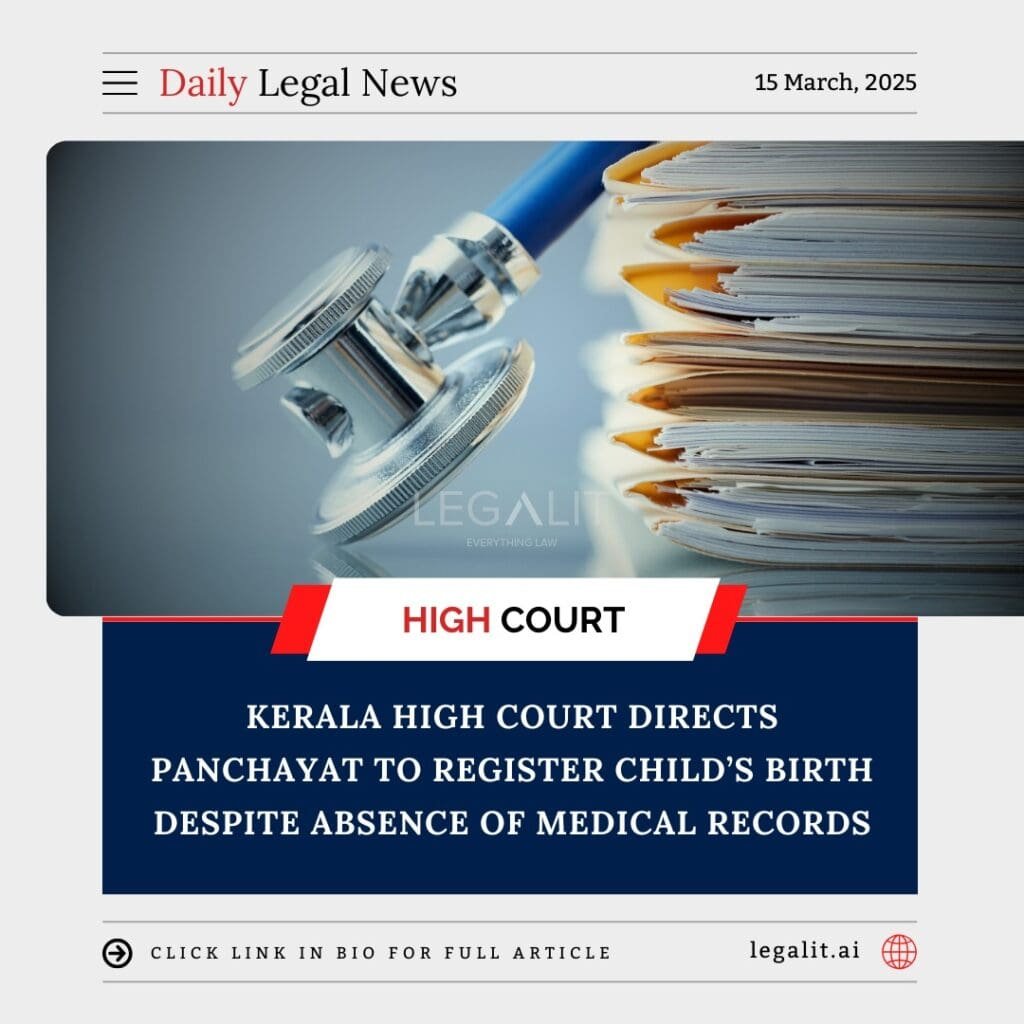
Background
The Kerala High Court has ordered a local panchayat to register the birth of a child even in the absence of medical records. The ruling came in response to a petition filed by the child’s parents, who were unable to provide hospital-issued birth documents required for official registration. The case highlights challenges faced by individuals in obtaining birth certificates, particularly in cases of home births or deliveries outside medical institutions.
Under the Registration of Births and Deaths Act, 1969, birth registration is a legal requirement, but many local authorities insist on medical records as proof. In this case, the panchayat had refused to register the birth, citing the absence of documentary evidence from a recognized hospital or medical practitioner.
Court’s Rationale
The Kerala High Court ruled in favor of the petitioner based on the following considerations:
- Fundamental Right to Identity
- The court recognized birth registration as a fundamental right that ensures access to essential documents such as passports, Aadhaar cards, and school admissions.
- It emphasized that a lack of medical records should not prevent a child from obtaining legal recognition.
- Alternative Proof Mechanisms
- The court directed the panchayat to consider affidavits, witness statements, and other credible evidence submitted by the parents to verify the birth.
- It noted that home births are common in rural areas, and rigid documentation requirements should not lead to denial of basic rights.
- Legal Obligations of Local Authorities
- Under the Registration of Births and Deaths Act, 1969, local authorities are responsible for ensuring birth registration, even if medical records are unavailable.
- The court clarified that refusing registration on technical grounds would be arbitrary and contrary to the law’s intent.
- Precedents on Birth Registration
- The ruling aligns with previous judgments that have upheld the right of individuals to obtain birth certificates even in exceptional circumstances.
- The court referred to cases where alternative evidence was accepted to facilitate registration.
Existing Regulations and Government Stance
- Registration of Births and Deaths Act, 1969
- Mandates that every birth be registered with the local authority.
- Allows registration based on alternative proofs if standard documentation is unavailable.
- State Government Guidelines
- Some states permit affidavits and witness testimonies as proof in cases of unregistered births.
Implications of the Judgment
The High Court’s decision carries significant implications:
- For Local Panchayats – Establishes that birth registration cannot be denied solely due to the absence of medical records.
- For Families Facing Documentation Issues – Provides a legal pathway for obtaining birth certificates based on alternative evidence.
- For Legal Identity Rights – Strengthens the right of every child to have an official identity and access to government services.
- For Future Birth Registration Policies – Encourages a more inclusive approach to birth registration, particularly in rural and marginalized communities.
Conclusion
The Kerala High Court’s ruling underscores the fundamental right of every child to birth registration, regardless of the availability of medical records. By directing the panchayat to accept alternative proof, the court has reinforced the importance of ensuring legal identity for all individuals. This decision is expected to guide local authorities in handling similar cases, ensuring that bureaucratic hurdles do not deprive individuals of their rightful documentation.